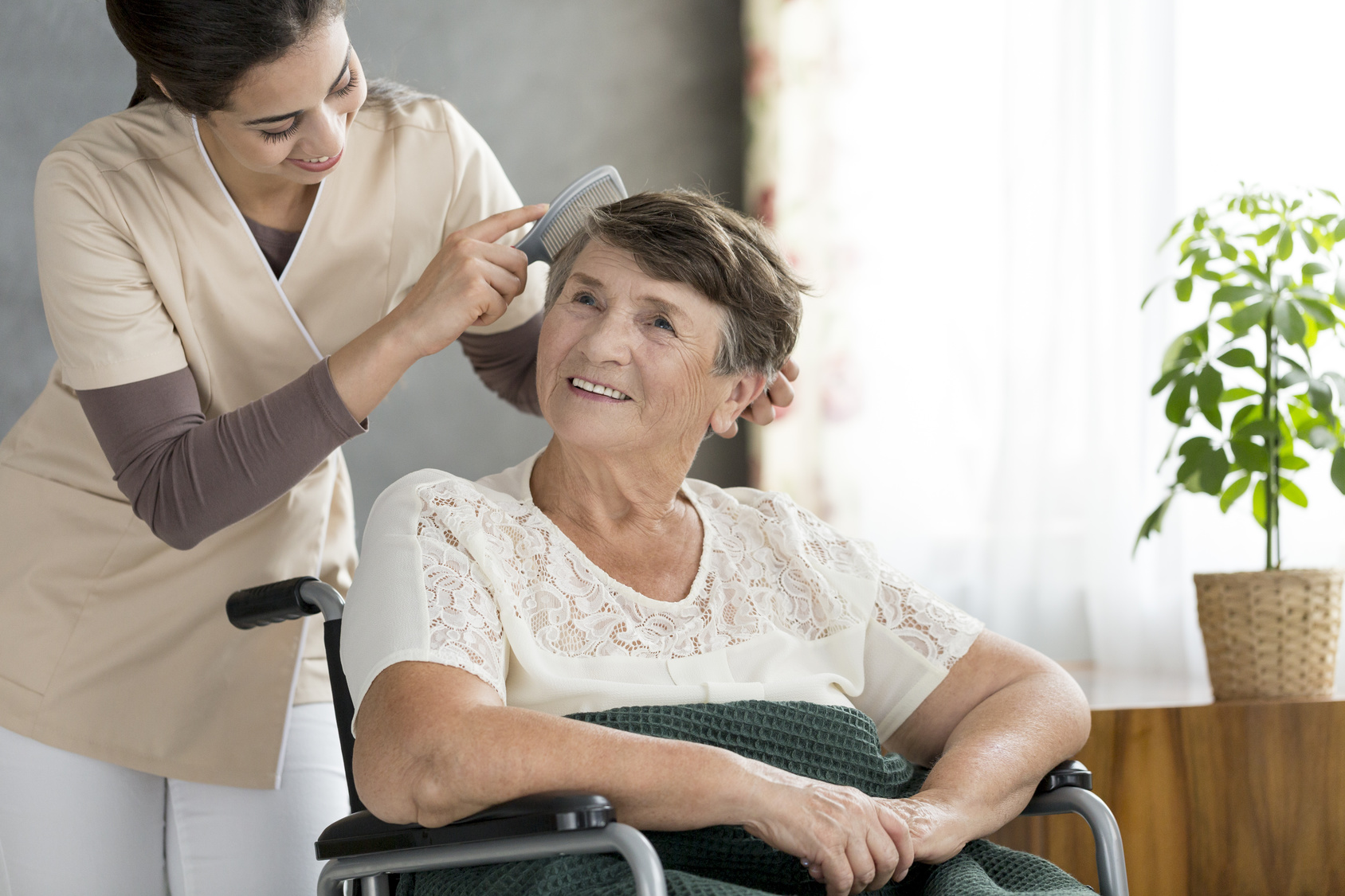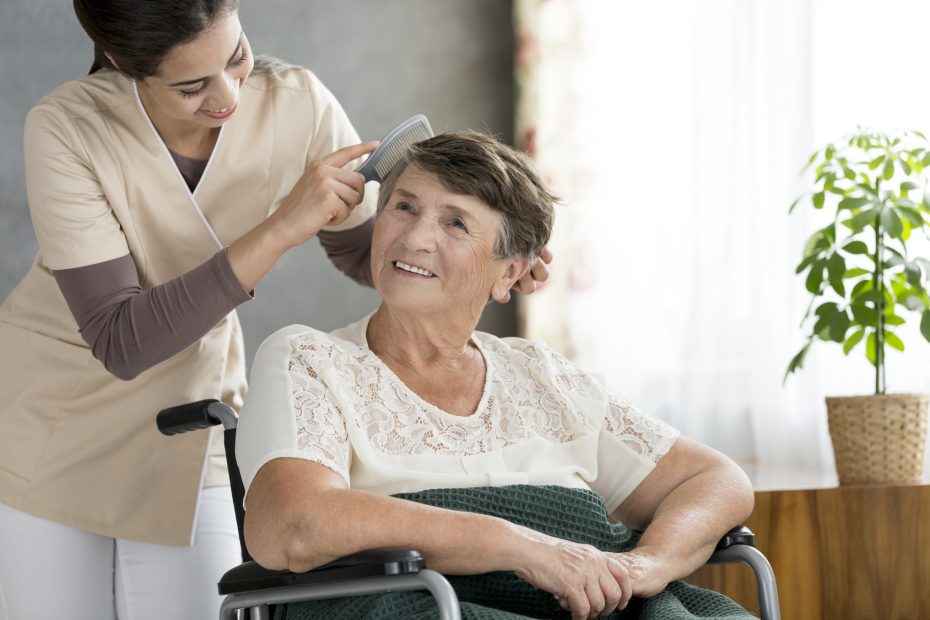 When an elderly individual has dementia, it is important that they get necessary care promptly to ensure they can lead a safe, healthy life. As the condition progresses, their symptoms worsen. What begins with short-term memory loss transitions to hindered cognitive abilities and loss of bodily control. Seniors with dementia can get the help they need at a care facility, but it is best they receive care at home. Their home is an environment they are comfortable and familiar with, which can make dementia care more effective and easier to provide. No matter where a dementia patient receives care, a proper care plan must be created and followed. A care plan ensures that the senior gets necessary help and dementia care catered to meet their unique care needs. This structure also benefits the affected senior, improving their mood and limiting agitation. Continue reading to learn more about dementia care and things to consider when care planning.
When an elderly individual has dementia, it is important that they get necessary care promptly to ensure they can lead a safe, healthy life. As the condition progresses, their symptoms worsen. What begins with short-term memory loss transitions to hindered cognitive abilities and loss of bodily control. Seniors with dementia can get the help they need at a care facility, but it is best they receive care at home. Their home is an environment they are comfortable and familiar with, which can make dementia care more effective and easier to provide. No matter where a dementia patient receives care, a proper care plan must be created and followed. A care plan ensures that the senior gets necessary help and dementia care catered to meet their unique care needs. This structure also benefits the affected senior, improving their mood and limiting agitation. Continue reading to learn more about dementia care and things to consider when care planning.
Who is Involved in the Care Planning Process?
The caregiver plays a key role in the care planning process as they are the ones who will be following and executing the dementia care plan. However, it is also crucial that the client’s loved ones are involved in the process. When caring for a senior with dementia, it is important to understand the individual’s background and history. The care plan helps the caregiver get a better understanding of the client, and family members and relatives know the affected senior the best. That said, their input is valuable in care planning and improves the quality of care. When creating a care plan, numerous things should be considered prior to finalizing it. The following are among the subjects that should be addressed when developing a dementia care plan.
1. Senior’s Biography and Background
Dementia caregivers need a thorough understanding of the elderly individual they are caring for. It is important to learn about the senior’s background and to know their biography. This is where the client’s loved ones can be especially helpful. The better a caregiver understands their patient, the more receptive the senior should be to care. Background and biographical information can include simple things like the person’s date of birth to personality traits to personal preferences like nicknames they prefer.
2. Health History
Whenever providing assistance, caregivers should be aware of the client’s medical history beyond their dementia. It will help them better understand their care needs and condition, and it helps ensure the senior can maintain good health.
3. Eating Preferences and Dietary Needs
Seniors with dementia cannot safely cook for themselves, so caregivers will handle that responsibility to make sure clients still eat regularly. As such, caregivers need to know what their client likes to eat, what nutritional needs they have, and what dietary restrictions they have ― if any.
Here are some interesting Food Ideas for Dementia Patients
4. Interests and Dislikes
Caregivers will be spending a significant amount of time with their clients, providing them not only with dementia care and assistance but companionship too. They need to know how your elderly loved one enjoys their time and what they like. This information can help the caregiver figure out what kind of activities to plan and prepare for once they begin to provide home care.
What Should a Dementia Care Plan Include?
In general, the different areas included within a dementia care plan should cover services to be provided, details for the services, frequency of provided services, and the purpose and goals for these services. When approaching plans from a day-to-day perspective, it is important to allow for some flexibility and not get too strict with the plan. You do not want the plan to be restrictive with no room for adjustments and spontaneity.
1. Memory Care What makes dementia care different from standard elderly care is that the caregivers will provide specific care regarding the senior’s dementia. Dementia caregivers have been trained to aid elderly individuals with dementia and they know how to respond to their symptoms, including wandering and agitation. Caregivers also know memory exercises that clients can do to help slow the progression of memory loss.
2. Personal Care The further along into dementia a senior is, the more assistance they will need, including help with personal care tasks. The care plan should include how the caregiver will help the elderly individual with dressing, personal hygiene, toileting, and other similar activities.
Learn about Oral Hygiene Care for Seniors with Dementia
3. Food and Meals The caregiver should prepare daily meals for their client. They should be healthy but still something the senior enjoys eating, and the meals should cater to any dietary restrictions and nutritional needs.
4. Leisurely Activities Caregivers are also companions to their clients, participating in fun activities together. This can include going for walks, playing games, doing crafts, and watching movies. You want this time spent together to be enjoyable, so these activities should be ones that cater to the senior’s interests. It can also be beneficial to do activities that promote mental stimulation, like crossword puzzles.
Alzheimer’s and Dementia Care Services from Assisting Hands Home Care

If you have an elderly loved one who suffers from dementia, then it is important that you get them the proper home care they need to live a safe, healthy life. At Assisting Hands Home Care, we offer numerous elderly care services, including dementia care, to help seniors. Within our comprehensive in-home memory care services, our trained caregivers provide specialized care to those elderly individuals who have Alzheimer’s disease or another form of dementia. We provide standard elderly care assistance and know how to respond to and help with common dementia symptoms. Our caregivers will even have seniors do memory exercises that are designed to combat memory loss. With help from our dementia care services at Assisting Hands, you can feel at ease knowing your elderly relative has the care and assistance they need to be safe and comfortable at home.
















